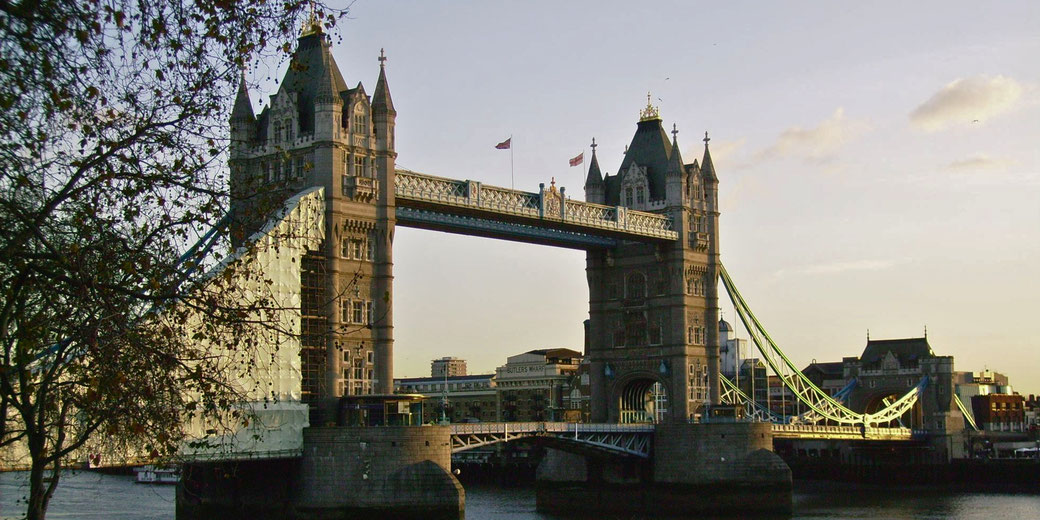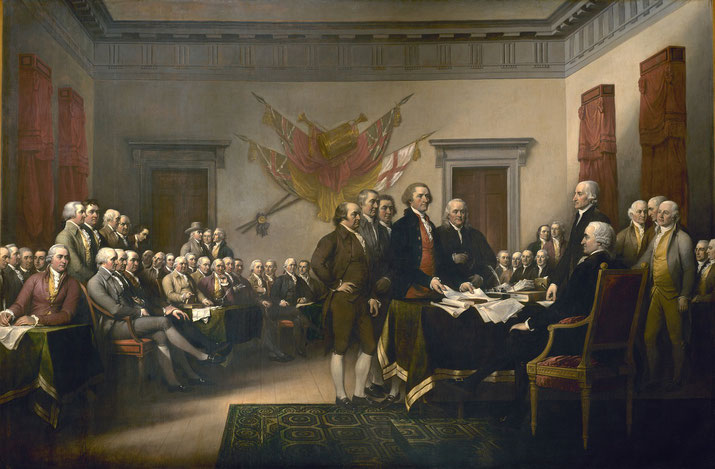Colonialism and imperialism: Understanding the British Empire's quest for global dominance

British colonialism and imperialism were some of the most powerful forces in world history. During the centuries of expansion, the British Empire's reach extended into nearly every continent and left an impact on societies that is still evident today.
At its heart, British imperialism was driven by a mix of ambition, wealth, and a belief in cultural superiority. While this ambition resulted in a vast empire, it also brought about significant conflicts and resistance.
What is colonisation and imperialism?
Colonisation is the process of taking ownership of someone's land for another country's own use.
Whereas imperialism is the use of political, economic, and military power to extend a nation's authority by establishing control over other territories.
The two concepts are often used interchangeably, but there are some important distinctions.
Colonisation is different to imperialism in that it generally refers to the physical occupation of a territory, whereas imperialism can refer to both occupation and economic domination.
A number of different European nations relied upon imperialism and colonisation to expand their empires in the early modern period.
Such countries included France, Spain, the Netherlands, and Portugal. By the start of the 20th century, most of Africa and Asia was controlled by a small number of European empires.
The birth of the British Empire
The British Empire was one of the largest empires in world history. At its peak in the 19th century, it controlled a quarter of the world's population and a third of its land surface.
British colonialism began in the late 15th century with the explorations of John Cabot.
However, England did not establish a permanent colony in the Americas until the early 17th century with the founding of Jamestown in 1607.
These early voyages were primarily motivated by a desire for wealth and prestige.
However, as the British Empire expanded, other motivations came into play, such as the desire to spread Christianity or to gain a strategic advantage over rival European powers.
The imperial experience had a profound effect on both colonized and colonizing nations.
In the colonies, Indigenous peoples were often displaced, exploited, and discriminated against.
In Britain, the imperial experience led to a sense of national superiority and a belief in the right to rule over other peoples.
Why did European powers expand?
Britain's early explorations were motivated by a desire for wealth and power. The British crown was specifically interested in commodities and cash crops like tobacco, sugar, and spices.
These commodities were then sold in European markets for a profit.
The British also established control over strategic trade routes, like the Spice Route, and through the use of entities like the East India Company.
Imperialism also had an impact on economic development. Colonies provided raw materials and markets for British goods, helping to fuel the Industrial Revolution.
Therefore, the desire to make money drove much of early European expansion.
Not only did the acquisition of new territories mean the discovery of new trade goods, but the more regions that a country controlled meant that they had more people to sell their products to.
As a result, the larger an empire became, the more its wealth increased.
However, critics argue that imperialism led to exploitation and underdevelopment in the colonies.
They point to the high taxes that colonized peoples were required to pay, as well as the damaging effects of economic competition between colonial powers.
In addition to economic motivations, British colonialism was also driven by political and social factors.
The establishment of representative democracy in Britain since the 17th century led the British to believe that it was the best form of government.
They claimed that if they could spread democracy around the world, that every nation would benefit.
In a similar way, British society believed that their morals (what they believed to be 'right' and 'wrong') was superior to any other social system in the rest of the world.
Therefore, they thought that all of humanity would benefit from adopting British culture.
The expectation of spreading this culture on all other people was known as the 'White Man's Burden' among the British people.
Then, in the 19th century, Social Darwinism, a belief in the superiority of some races over others, also played a role in British imperialism.
This ideology justified Britain's right to rule over other peoples, on the grounds that they were 'racially inferior'.
How slavery was used to build colonies
During the era of British colonialism and imperialism, slavery was an important part of the economy.
Early colonisers had hoped to use the local peoples of their colonies as a form of cheap labour on farms and in mines.
However, diseases like smallpox and constant warfare made this impractical.
As a result, the British turned to Africa as a source of enslaved people. Slaves were brought from Africa to work on plantations in the Americas and the Caribbean.
They were also used in other parts of the world, including India and Southeast Asia.
Between the 16th and 19th centuries, an estimated 12 million Africans were taken from their homes and sold into slavery.
The slave trade was extremely profitable for British ship owners and merchants. It is estimated that between 1750 and 1830, the British slave trade generated an estimated profit of £100 million.
Eventually, the slave trade was abolished in 1807, but slavery itself continued to exist in British colonies until it was finally made illegal in 1833.

The impact of the Industrial Revolution
The wealth and natural resources gained by Britain from its colonies were some of the crucial factors which led to the Industrial Revolution.
The Industrial Revolution began in Britain in the late 18th century and spread to other parts of the world in the 19th century.
This period of rapid economic growth was fuelled by the development of new technologies, like the steam engine and the Spinning Jenny.
The Industrial Revolution led to a dramatic increase in the production of goods, which helped fuel the growth of the British Empire.
It also had a profound impact on social and economic life, transforming Britain from a primarily agrarian society into an industrial powerhouse.
As a result of the increased production of food and luxury goods, the Industrial Revolution caused a rapid increase in Britain's population and wealth.
It also had a profound effect on British society, as people began to move from rural areas into cities to work in factories.
What were the major British colonies?
The British colonisation of North America began in the 16th century, when England established colonies in Virginia and Newfoundland.
Colonisation continued in the 17th century, as the British founded New England, Maryland, and Pennsylvania.
In the 18th century, Britain's thirteen American colonies became a prosperous and populous part of the empire.
In Canada, French colonisation began in the 16th century, but British domination began with the defeat of France in the Seven Years' War (1756-1763).
After this conflict, Britain gained control of all French territory in North America east of Louisiana.
In the 19th century, British colonists began to settle in the western part of Canada, creating the provinces of Manitoba (1870) and British Columbia (1871).
In Australia, colonisation began in 1788 with the establishment of a British penal colony in New South Wales.
This was followed by the founding of other colonies, including Tasmania (1803), Western Australia (1829), and Victoria (1851).
In 1901, these colonies were federated to form the Commonwealth of Australia.
In India, British colonisation began in the 18th century with the establishment of trading posts along the coast.
In 1757, the British gained control of Bengal after defeating the local rulers at the Battle of Plassey in 1757.
This victory is seen as the beginning of British rule in India.
American War of Independence
The process of colonisation and imperialism created regions of social and military tensions in different parts of the world.
Not only were the First Nations peoples willing to fight to retain their independence from European domination, but many of the European settlers also started to resist control.
In North America, Native American tribes fought against European settlers in a series of wars, the most famous of which was the French and Indian War of 1754-63.
Likewise, in Australia, the First Nations people resisted British attempts to take over their land during the Frontier Wars.
In New Zealand, the Maori people fought against British colonisation in the Maori Wars between 1845 and 1872.
The British Empire faced a significant crisis in 1776, when the European colonists that occupied the 13 North American colonies declared their independence from Britain.
These colonies were wealthy and expanding, but they were also subject to strict imperial controls.
This led to tension between the colonists and the British government, which came to a head with the American War of Independence, which lasted from 1775 to 1783.
With significant economic and military support from France, the American colonies successfully repelled British attempts to bring them back under submission, and as a result, they were able to force the British to accept their independence.
After eight years of fighting, the colonists were victorious, and the United States of America was born.

Criticism of British colonialism and imperialism
The effects of British colonialism were far-reaching. In the colonised nations, it led to the displacement of Indigenous peoples, the introduction of new technologies and religions, and changes in economic and political structures.
British colonialism and imperialism have been criticised for their negative effects on Indigenous peoples and on the development of colonised countries.
Critics argue that colonialism led to exploitation, racism, and underdevelopment in the colonies.
They also point to the negative impact of British cultural imperialism, which imposed Western values and ideas on colonised peoples.
In the colonising nations, such as Britain, it often resulted in the growth of a wealthy elite, while the majority of the population remained poor.
The increasing gap between the rich and poor in Europe was exacerbated by the Industrial Revolution.
The long-term impact of the British Empire
The British Empire finally came to an end in the mid-20th century. India and Pakistan gained independence in 1947, while Sri Lanka became independent in 1948.
Ghana and Kenya gained independence later, in 1957 and 1963, respectively. The Empire was dismantled, and the process of decolonisation began.
The legacy of British colonialism and imperialism is still evident today. In many parts of the world, British colonial boundaries were used to create modern nation-states.
This has led to conflict in some regions, as different groups compete for control over territory.
In addition, the legacy of British imperialism can also be seen in the language, culture, and institutions of many former colonies.
Even after the decline of the British Empire, the English language remains one of the most important international languages in trade and business.
What do you need help with?
Download ready-to-use digital learning resources
Copyright © History Skills 2014-2025.
Contact via email
With the exception of links to external sites, some historical sources and extracts from specific publications, all content on this website is copyrighted by History Skills. This content may not be copied, republished or redistributed without written permission from the website creator. Please use the Contact page to obtain relevant permission.





